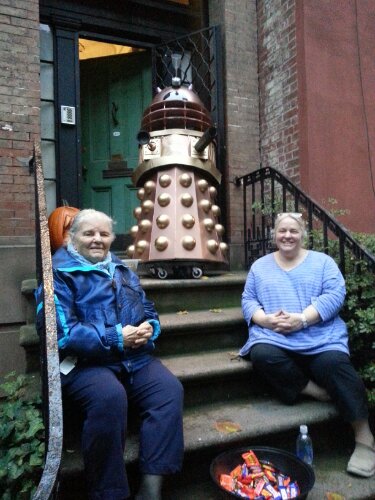Person of Interest is filming in my neighborhood today, and the crew has changed some of the street signs.
I probably would not have noticed, except this happens to be the “famous” corner where Waverley intersects with itself. Remember Kramer getting lost in the West Village and stumbling upon intersection of 1st and 1st?








